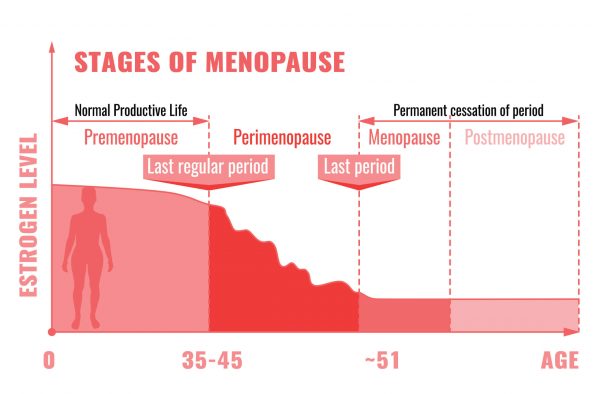Featured
Exciting New Finding On Bioidentical Progesterone: The New Is GREAT!
There is a lot of fear about the use of hormones in perimenopause and menopause. During these times of life women experience dramatic, uncontrollable changes in their minds and bodies.
They complain of terrible mood swings and irritability, they snap at people and relationships suffer, they are tired and can’t sleep, brain fog interferes with their thinking and clarity and ability to perform in daily life, they gain weight, can’t fit in their clothes and feel bad about themselves. Depending on what stage a person is in, they can experience irregular, heavy periods and PMS symptoms worse than a teenager, menstrual migraines, hot flashes, night sweats or no period, fibroids, and breast and/or ovarian cysts.
These symptoms can be reversed with hormone replacement therapy. My patients say they feel like themselves again and they got their life back. They experience boundless energy, stable moods, a clear sharp mind, they lose weight, and no longer have period problems, hot flashes and night sweats dissolve and cysts and fibroids shrink. That spells RELIEF and they THRIVE!
If hormone replacement is so great, why doesn’t everyone do it?
FEAR! They fear breast cancer based on a very old study that was done on women whose average age was 63, they were 10 years past menopause and used high doses of synthetic hormones.
We don’t give hormones that way anymore! We know much more now.
The biggest mistake from getting information from the media is that they call everything progesterone. A synthetic progesterone in scientific terms is called progestin or progestogens. A natural, bioidentical progesterone that is the same chemical structure as that in your body is called progesterone or oral micronized progesterone (OMP). There is a lot of good news about using this natural form.
Review of the Studies
The impact of micronized progesterone on breast cancer risk: a systematic review
A review of the studies published in Climacteric Journal gave us a lot of good news:
An International Panel on menopausal hormone replacement therapy containing micronized progesterone are as follows:
- Estrogens combined with oral (approved) or vaginal (off-label use) micronized progesterone do not increase breast cancer risk for up to 5 years of treatment duration
- There is limited evidence that estrogens combined with oral micronized progesterone applied for more than 5 years are associated with an increased breast cancer risk.
- Counseling on combined MHT should cover breast cancer risk – regardless of the progestogen chosen. Yet, women should also be counseled on other modifiable and non-modifiable breast cancer risk factors in order to balance the impact of combined MHT (Menopausal Hormone Therapy) on the breast. We do this and more!
Bioidentical hormones regulate genes and cell growth in a positive way
Uncontrolled cell growth, otherwise known as proliferation, or a failure of cells to stop growing at the normal time can cause cancer and not getting rid of old malfunctioning cells through apoptosis can create an environment for cancer. Apoptosis, otherwise known as programmed cell death, is the body’s way of getting rid of unneeded or abnormal cells. This process is blocked in cancer cells.
Bioidentical hormones have a big positive influence on stopping uncontrolled cell growth and cleaning out abnormal cells.
- A total of 225 genes were involved in mammary tumor development of which 198 were attributable to synthetic estrogen combined with progesterone and 34 to bioidentical estrogen given through the skin combined with bioidentical oral micronized progesterone.
- These bioidentical hormones work on the genetic level to reduce uncontrolled cell proliferation and tumor development. Note: both estrogen and progesterone had to be bioidentical.
- Transdermal (through the skin) bioidentical estradiol combined with oral micronized progesterone induced less cell growth and adverse expression of important genes regulating tumor cell growth, old cell death and tumor inclination
- Topical micronized progesterone reduced breast cell growth (excess growth leads to cancer)
- Oral micronized progesterone stopped the expression of the Ki-67 gene that increases cell growth.
- Oral micronized progesterone did not increase breast density whereas synthetic progestogens did.
- Proliferation induction (cell growth) was less pronounced compared to ‘conventional’ hormone replacement (we don’t do things the old fashioned “conventional” way).
- Breast cancer risk was not affected for up to 5 years of treatment.
- However, estrogens combined with micronized progesterone or dydrogesterone were associated with a slight increase in breast cancer risk after an average of 6 years of treatment duration.
The bottom line is the type of hormone and the way you deliver it matters. Doesn’t it make sense to give your body the exact hormone it made that has gone missing rather than synthetic versions that came from horses or just made up?
If you are suffering and are considering hormone replacement therapy to get relief from symptoms and to protect your bones, brain, heart, self-confidence and self-esteem, apply for a free no obligation consultation to see if we are the right fit for you.
 Lorraine Maita, MD, CEO & Founder of The Feel Good Again Institute and Vibrance for life and widely known as “The Hormone Harmonizer”, has helped thousands of people ditch fatigue, brain fog, mood swings, lose weight, and achieve balanced hormones so they Feel Good Again.
Lorraine Maita, MD, CEO & Founder of The Feel Good Again Institute and Vibrance for life and widely known as “The Hormone Harmonizer”, has helped thousands of people ditch fatigue, brain fog, mood swings, lose weight, and achieve balanced hormones so they Feel Good Again.
She is a recognized and award-winning triple board certified, holistic, functional, integrative and anti-aging physician, speaker and author, and has been featured in ABC News, Forbes, WOR Radio and many media outlets to spread the word that you can live younger and healthier at any age.





